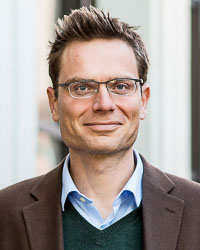
Management and Productivity: Key Findings and Key Outstanding Questions
This Master Class will review the literature around management and productivity. This is an old research area in economics – the founding president of the American Economic Association, Francis Walker, published a paper in 1887 “On the sources of business profits” in the first year of the QJE on management practices – but has had a recent revival with many papers in top-5 journals on management in the last few years. To overview this exciting new interest we will focus on five key topics:
- The concept of productivity: labor and total factor productivity, and some of the basic facts on differences in levels and dispersion across firms and countries.
- The large-sample work trying to measure and evaluate management practices – both using the World Management Survey and the recent Census MOPS surveys.
- The recent work on randomized control trials on management practices, trying to evaluate the causal impact and durability of better management practices.
- Research focusing on individual “managers” (typically CEOs) rather than “management practices” – for example, Jack Welch or Carlos Ghosn rather than firms like Toyota or Walmart.
- Some of the key outstanding research and policy questions in the field.
2018
William Eberle Professor of Economics at Stanford University
“Management and Productivity: Key Findings and Key Outstanding Questions”
Program is subjected to change. Updated on 5 May 2018.
Speakers
-

Professor Nicholas Bloom
William Eberle Professor of Economics, Stanford University
Nicholas (Nick) Bloom is the William Eberle Professor of Economics at Stanford University, a Senior Fellow of SIEPR, and the Co-Director of the Productivity, Innovation and Entrepreneurship program at the National Bureau of Economic Research. His research focuses on management practices and uncertainty. He previously worked at the UK Treasury and McKinsey & Company.
He is a Fellow of the American Academy of Arts and Sciences, and the recipient of the Alfred Sloan Fellowship, the Bernacer Prize, the European Investment Bank Prize, the Frisch Medal, the Kauffman Medal and a National Science Foundation Career Award. He has a BA from Cambridge, an MPhil from Oxford, and a PhD from University College London.
On the personal side he is English, living with his Scottish wife and American kids on Stanford campus, in a multi-lingual English household.
- 1
